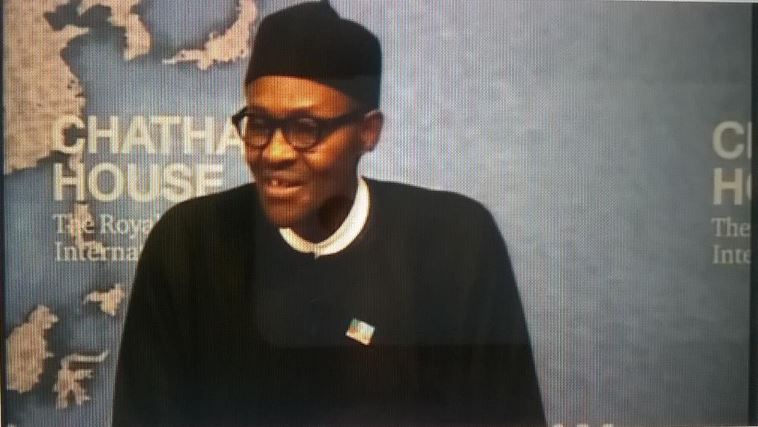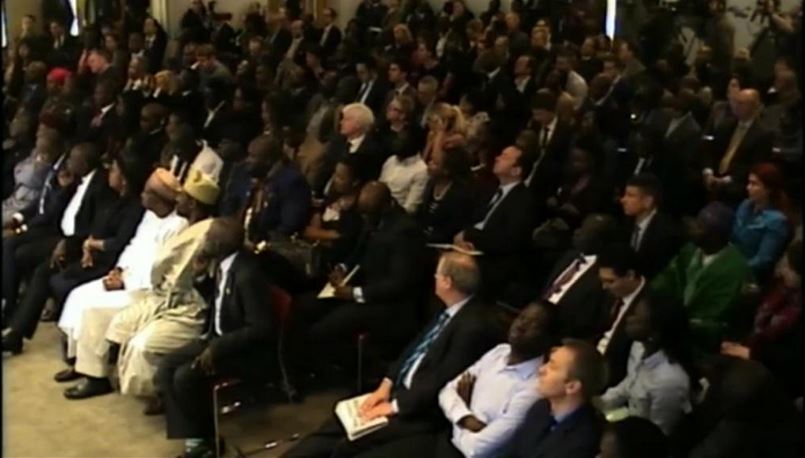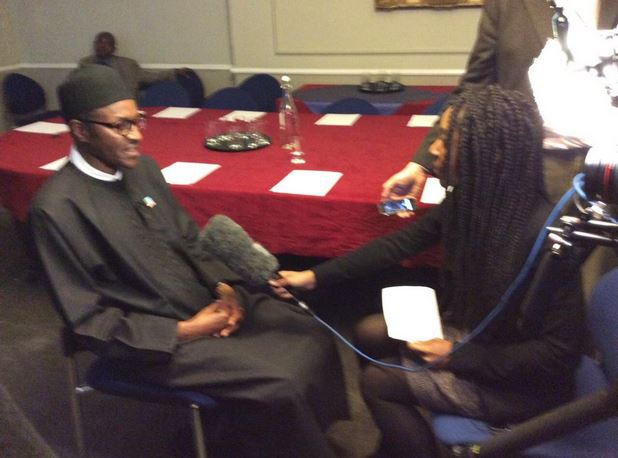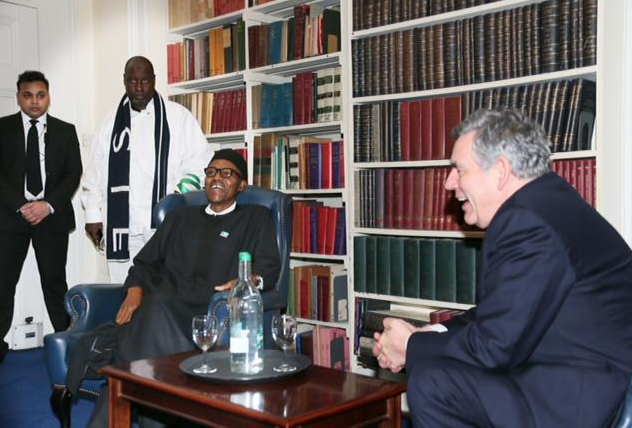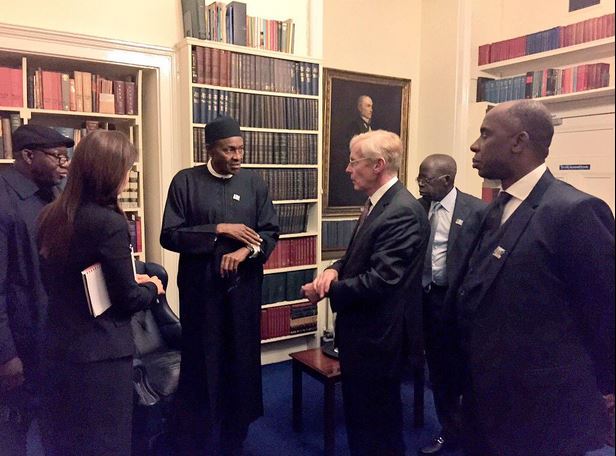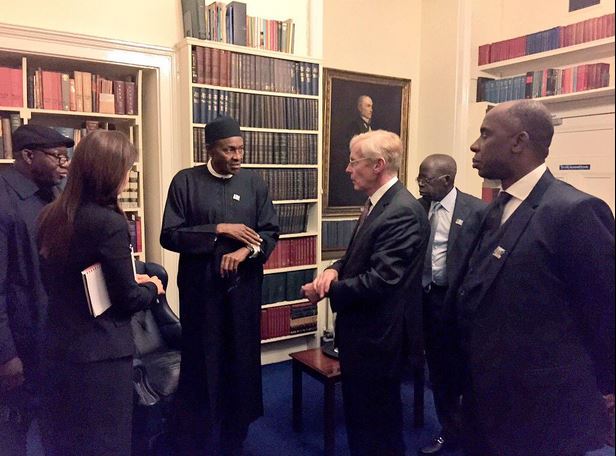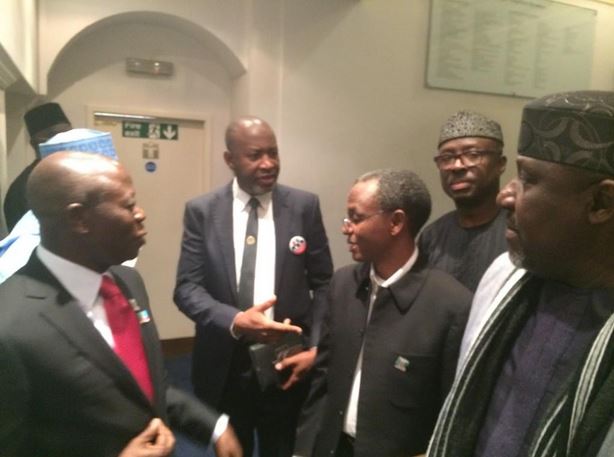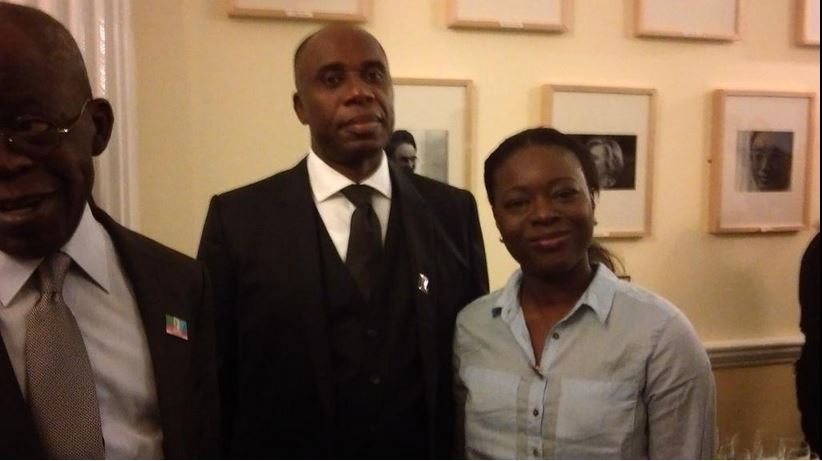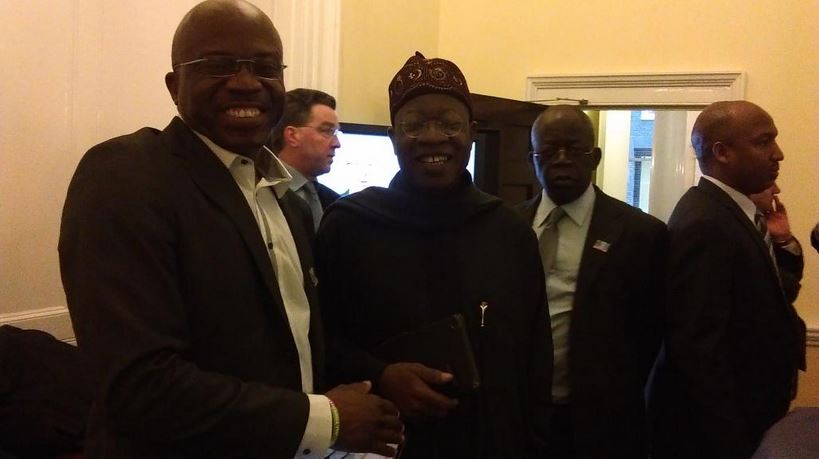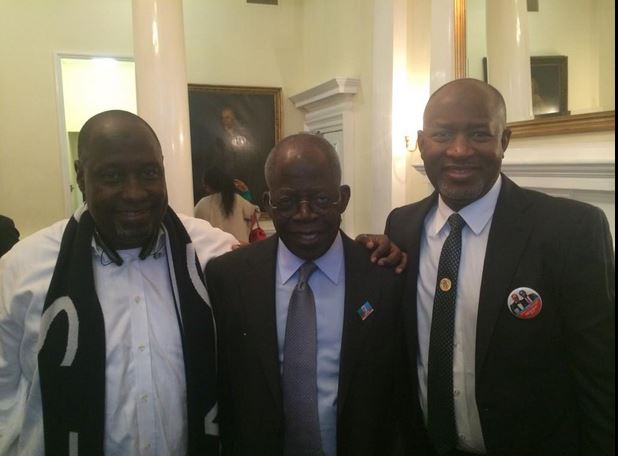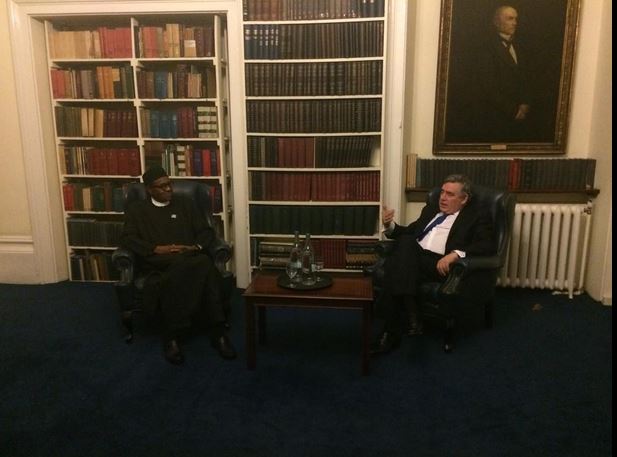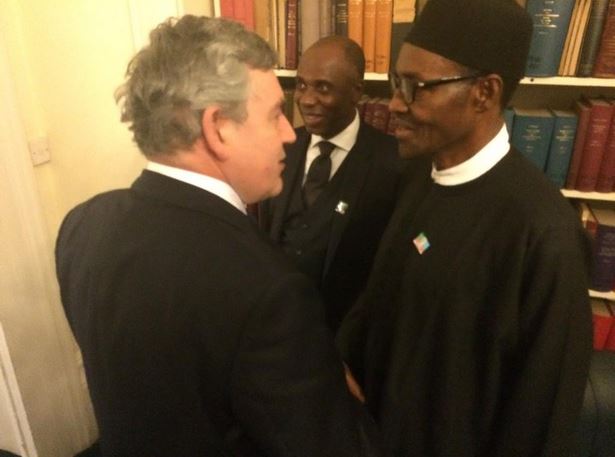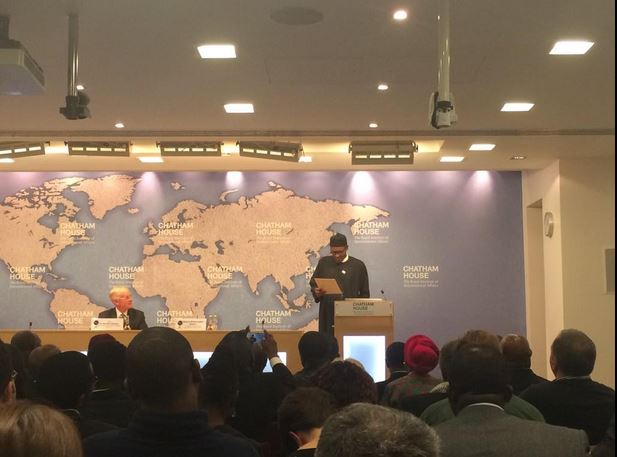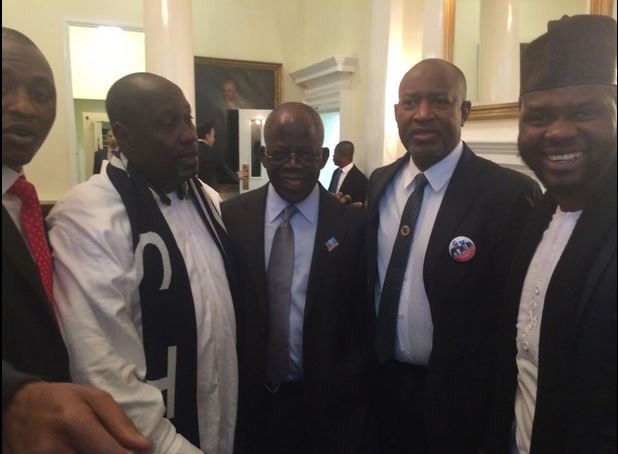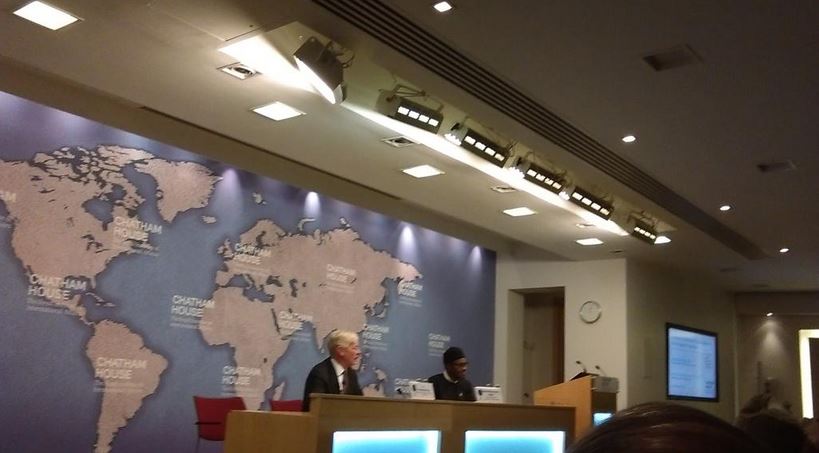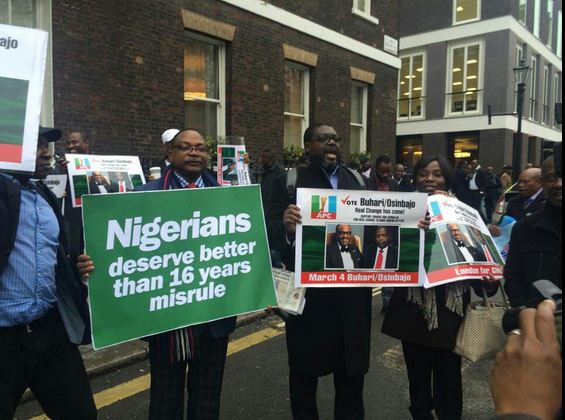 The presidential candidate of the All Progressives’ Congress
The presidential candidate of the All Progressives’ Congress
(APC) General Muhammadu Buhari spoke earlier today at the Royal
Institute for International Affairs, Chatham House, London to a room
packed with British politicians, diplomats, journalists and a wide
cross-section of Nigerians.
Former British High Commissioner to Nigeria and Chair for the event, Sir
Richard Gozney introduced General Buhari to the audience as “a man of
modesty, unusual for a Nigerian politician, and having clarity of
thoughts and speech.”
His 25-minute speech, titled Prospects for Democratic Consolidation in
Africa: Nigeria’s Transition, focused on the postponed Nigerian
elections, the need for its credibility and transparency and its
implications for democracy across Africa.
“It is in our collective interests that the postponed elections should
hold on the rescheduled dates; that they should be free and fair; that
their outcomes should be respected by all parties; and that any form of
extension, under whichever guise, is unconstitutional and will not be
tolerated,” he said.
He also reassured his audience of his democratic views and of his belief
that the spread of democracy around the world since the end of the Cold
War has shown him that it was another path to change and a preferable
one than military rule.
He also added that democracy was not just about allowing people to
choose their leaders, but that it should also deliver on the promise of
choice, of freedoms, of security of lives and property, of transparency
and accountability, of rule of law, of good governance and of shared
prosperity.
He reiterated his commitment to end the raging insurgency in the
North-East by defeating the Islamist terror group, Boko Haram which has
killed about 13,000 people in 5 years and taken control of territory.
“Let me assure you – if I am elected president, the world has no cause
to worry about Nigeria as it is currently,” he said.
He concluded by taking responsibility for the events under his watch as
military Head of State and stated that while he could not change the
past, he desires to change the present and the future.
“Let me say without sounding defensive that dictatorship goes with
military rule, though some might be less dictatorial than others. I take
responsibility for whatever happened under my watch. I cannot change the
past. But I can change the present and the future. So before you is a
former military ruler and a converted democrat who is ready to operate
under democratic norms and is subjecting himself to the rigours of
democratic elections for the fourth time.”


